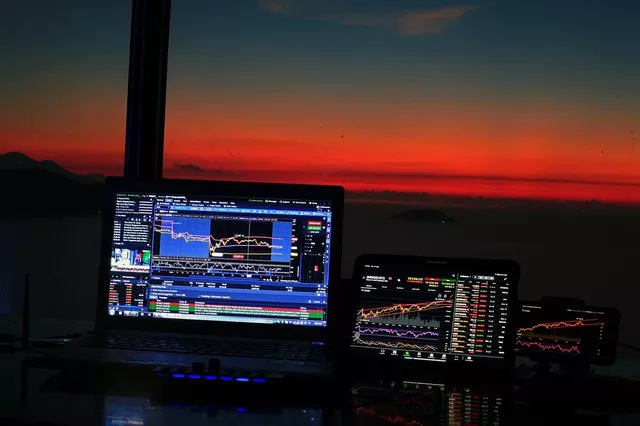Futures trading involves the buying and selling of standardized contracts for the future delivery of assets at a predetermined price. It serves as a financial tool for investors and traders to hedge against price fluctuations, speculate on market movements, and diversify their investment portfolios. Participants in futures trading include institutional investors, hedge funds, commodity producers, and individual retail traders seeking exposure to various asset classes.
Benefits of Trading Futures
Trading futures offers several benefits, including:
Leverage: Futures contracts allow traders to control a large position with a relatively small amount of capital, magnifying potential profits (and losses).
Hedging: Futures contracts provide a mechanism for hedging against adverse price movements, enabling businesses to manage risk associated with fluctuations in commodity prices, interest rates, or currency exchange rates.
Market Liquidity: Futures markets are highly liquid, with ample trading volume and tight bid-ask spreads, facilitating efficient price discovery and order execution.
Diverse Asset Classes: Futures contracts are available on a wide range of underlying assets, including commodities (such as oil, gold, and agricultural products), financial instruments (like stock indices and interest rates), and currencies.
Key Features of a Good Trading Platform
When evaluating futures trading platforms, traders should consider the following key features:
User Interface: An intuitive and user-friendly interface enhances the trading experience, allowing traders to execute orders efficiently and access essential market data and analysis tools.
Order Execution Speed: Low latency and fast order execution are crucial for capturing market opportunities and minimizing slippage.
Fees and Commissions: Transparent fee structures and competitive commission rates contribute to cost-effective trading.
Customer Support: Responsive customer support is essential for addressing technical issues, resolving queries, and providing assistance when needed.
Security: Robust security measures, including encryption protocols and two-factor authentication, safeguard traders’ funds and personal information against cyber threats.
See Also: How long can you short futures?
Comparison of Top Platforms
Several futures trading platforms stand out for their comprehensive features, advanced technology, and user satisfaction. Here’s a comparative analysis of some of the leading platforms:
TD Ameritrade: Known for its powerful thinkorswim platform, TD Ameritrade offers advanced charting tools, customizable dashboards, and a wide range of educational resources for traders of all levels.
Interactive Brokers: With its Trader Workstation (TWS) platform, Interactive Brokers provides access to global futures markets, low-cost commissions, and sophisticated trading tools for professional traders.
NinjaTrader: NinjaTrader is renowned for its cutting-edge trading platform, featuring advanced charting capabilities, automated trading strategies, and extensive market analysis tools.
ETRADE: ETRADE offers a user-friendly platform with robust research and analysis tools, competitive pricing, and a wide selection of futures contracts across multiple asset classes.
TradeStation: TradeStation’s platform boasts powerful analytics, backtesting capabilities, and a variety of educational resources to help traders develop and execute their strategies effectively.
User Reviews and Testimonials
Real user experiences and testimonials provide valuable insights into the strengths and weaknesses of each trading platform. Traders should consider factors such as reliability, ease of use, customer support, and overall satisfaction when evaluating user reviews.
Educational Resources
Access to educational materials, webinars, and training resources can significantly benefit traders, especially those new to futures trading. Platforms that offer comprehensive educational resources can help traders enhance their knowledge and skills, ultimately improving their trading performance.
Regulatory Compliance
Ensuring regulatory compliance is paramount when choosing a futures trading platform. Traders should verify that the platform is licensed and regulated by relevant authorities, providing a level of assurance regarding the platform’s legitimacy and adherence to industry standards.
Account Types and Requirements
Futures trading platforms typically offer various account types to accommodate the diverse needs of traders, including individual accounts, joint accounts, corporate accounts, and retirement accounts. Minimum deposit requirements may vary depending on the platform and account type chosen.
Market Access
A robust futures trading platform should provide access to a wide range of futures contracts across different asset classes, including commodities, stock indices, interest rates, and currencies. The availability of diverse market instruments allows traders to build diversified portfolios and capitalize on various market opportunities.
Mobile and Desktop Experience
The availability of mobile apps and desktop platforms enhances accessibility and flexibility for traders, allowing them to monitor markets, execute trades, and manage their portfolios on the go. A seamless and responsive user experience across both mobile and desktop platforms is essential for optimal trading performance.
Demo Account Availability
Demo accounts offer a risk-free environment for traders to practice trading strategies, familiarize themselves with the platform’s features, and gain confidence before transitioning to live trading. Platforms that offer demo accounts enable traders to test their strategies and refine their skills without risking real capital.
Customer Service and Support
Responsive and reliable customer support is essential for addressing technical issues, resolving queries, and providing assistance when needed. Platforms that offer multilingual support, extended operating hours, and multiple channels of communication (such as phone, email, and live chat) ensure traders receive timely and effective support whenever required.
Conclusion
In conclusion, selecting the best futures trading platform requires careful consideration of various factors, including user experience, functionality, cost-effectiveness, regulatory compliance, and customer support. By evaluating these key features and conducting thorough research, traders can identify the platform that best aligns with their trading preferences, investment goals, and risk tolerance levels. Whether you’re a seasoned trader or just starting, choosing the right platform can significantly impact your trading success and overall experience in the futures markets.


